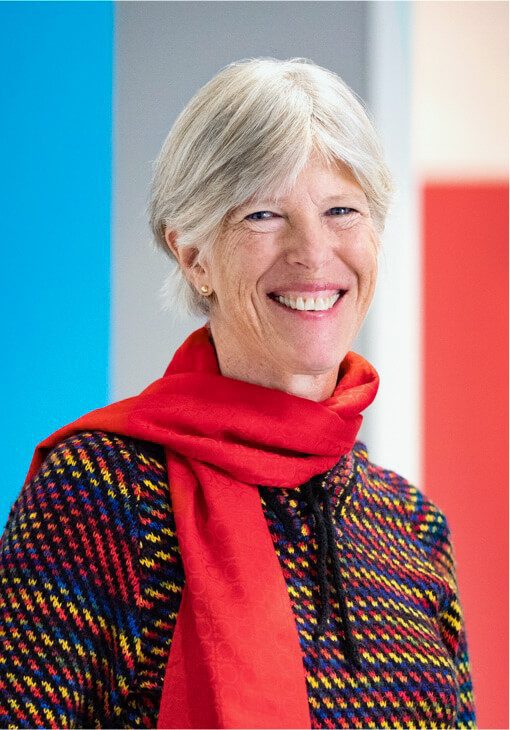About
In 1993, Cynthia’s pioneering discovery that a single-gene mutation could double the lifespan of healthy, fertile C. elegans roundworms sparked an intensive study of the molecular biology of aging. Her findings showed that, contrary to popular belief, aging does not “just happen” in a completely haphazard way. Instead, the rate of aging is subject to genetic control. Animals (and likely people) contain regulatory proteins that affect aging by coordinating diverse collections of downstream genes that together protect and repair the cells and tissues. Her findings have led to the realization that a universal hormone-signaling pathway influences the rate of aging in many species, including mammals. She has identified many longevity genes and pathways, and her lab was the first to discover that neurons, and also the germ cells, can control the lifespan of the whole animal.
Cynthia graduated valedictorian in chemistry from the University of Georgia. She earned her Ph.D. from the Massachusetts Institute of Technology and was a postdoctoral fellow with Nobel laureate Sydney Brenner in Cambridge, England. In 1986, she joined the faculty of the University of California at San Francisco where she became the Herb Boyer Distinguished Professor and an American Cancer Society Professor, before joining Calico in 2014. Kenyon is a member of the U.S. National Academy of Sciences, the National Academy of Medicine and the American Academy of Arts and Sciences, and she is a former president of the Genetics Society of America. She has received many scientific honors and awards.
